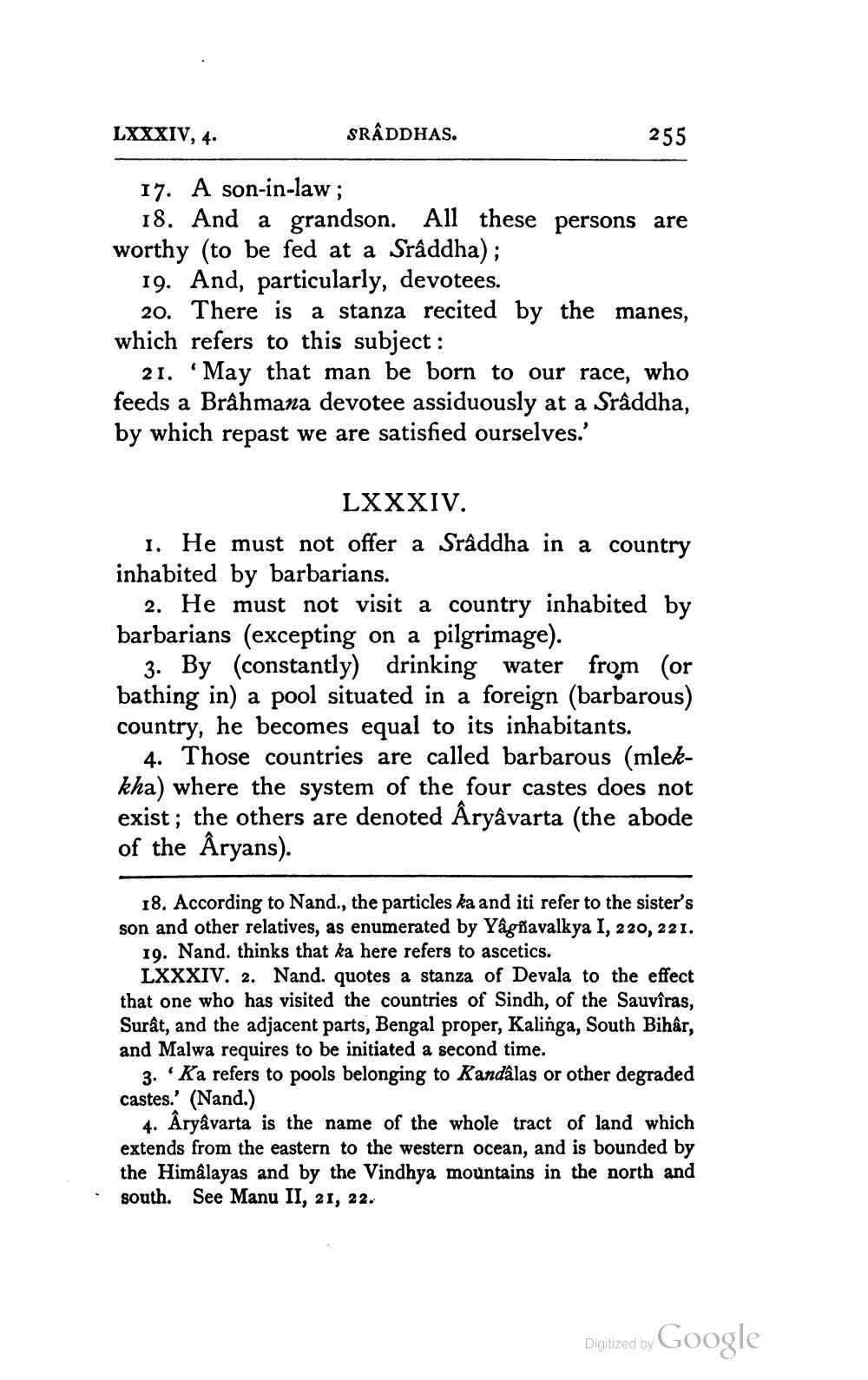________________
LXXXIV, 4.
SRADDHAS.
255
17. A son-in-law;
18. And a grandson. All these persons are worthy (to be fed at a Sraddha);
19. And, particularly, devotees.
20. There is a stanza recited by the manes, which refers to this subject :
21. May that man be born to our race, who feeds a Brâhmana devotee assiduously at a Sraddha, by which repast we are satisfied ourselves.'
LXXXIV. 1. He must not offer a Sraddha in a country inhabited by barbarians.
2. He must not visit a country inhabited by barbarians (excepting on a pilgrimage).
3. By (constantly) drinking water from (or bathing in) a pool situated in a foreign (barbarous) country, he becomes equal to its inhabitants.
4. Those countries are called barbarous (mlekkha) where the system of the four castes does not exist; the others are denoted Aryâvarta (the abode of the Aryans).
18. According to Nand., the particles ka and iti refer to the sister's son and other relatives, as enumerated by Yâgplavalkya I, 220, 221.
19. Nand. thinks that ka here refers to ascetics.
LXXXIV. 2. Nand. quotes a stanza of Devala to the effect that one who has visited the countries of Sindh, of the Sauvîras, Surât, and the adjacent parts, Bengal proper, Kalinga, South Bihar, and Malwa requires to be initiated a second time.
3. Ka refers to pools belonging to Kandalas or other degraded castes.' (Nand.)
4. Aryavarta is the name of the whole tract of land which extends from the eastern to the western ocean, and is bounded by the Himalayas and by the Vindhya mountains in the north and south. See Manu II, 21, 22.
Digitized by Google




